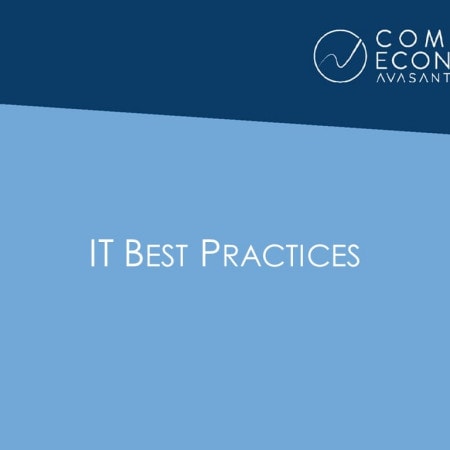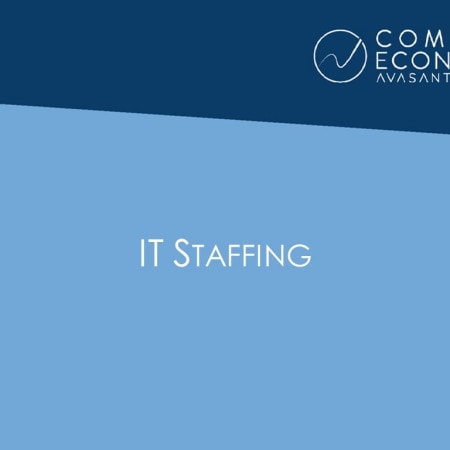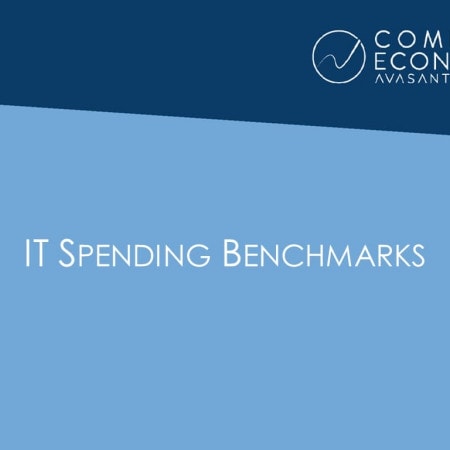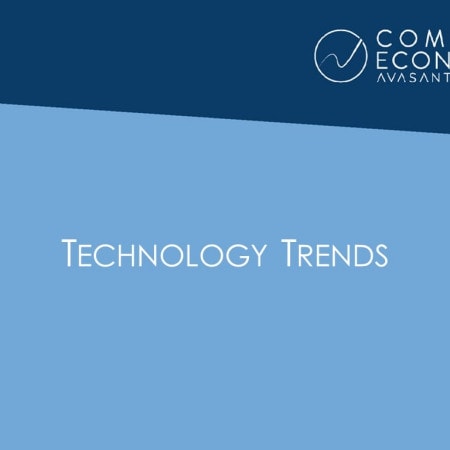-

Controlling IT Security Costs
Developing an effective security management process is key to controlling costs and protecting your IT environment. This article provides key points for choosing between using integrated functionality in network devices and using a specialized functional appliances.
October, 2002
-

IT Staffing Trends in Organizations With ERP Applications in Place (Oct 2002)
Many organizations will be facing the need to move their operations to an ERP system to stay competitive and to control costs. The challenges of bringing your company into the ERP world are manageable, as many other organizations have demonstrated, but it will require a major investment of management time, creativity, and effort.
October, 2002
-

IT Spending and Management Patterns in Organizations With E-Commerce in Place (Oct 2002)
Businesses seeking to gain more control of their purchasing transactions are investigating B2B networks in the form of private exchanges.
October, 2002
-

E-Commerce and Computer Network Data from the U.S. Census Bureau (October 2002)
The latest data estimates retail e-commerce sales for 1Q02 at $9.849 billion, an increase of 19.3% from 1Q01.
October, 2002
-

Eliminating Software Bugs Could Save Billions
About two-thirds of users polled experienced significant software bugs last year; their organizations averaged 40 major and 49 minor bugs during that period. To better estimate the cost of bugs in the real world, researchers conducted case studies in the transportation and financial services sectors.
October, 2002
-

E-Business at the Crossroads
Despite enormous potential, e-business and e-commerce companies have often been disappointed by the results obtained from their investments. The spectacular shakeout of the dot coms last year has emphasized this point. Even in light of these events, now is not the time to give up on e-business efforts. Nevertheless, E-business can only work if the organization is ready to embrace changes in its business methods.
October, 2002
-

Nearly One-Third of Polled Firms Have No Written IT Security Policy
A survey conducted in June 2002 by Computer Economics revealed that 30% of the organizations polled do not have written IT security policies in place, despite the fact that written policies are key to a successful security effort.
October, 2002
-

IT Contract and Consulting Providers Receive Mediocre Report Cards
A newly released study conducted by Computer Economics indicates that most end user organizations do not feel their contract and consulting service providers are delivering as high a quality of service as they would like.
October, 2002
-

ROI for Collaborative Product Commerce
A new study shows that positive ROI for collaborative product commerce (CPC) is readily achievable. All respondents to the research survey reported significant savings in time and cost.
October, 2002
-

North American Industry Classification System
The 1997 North American Industry Classification System (NAICS) is designed as a replacement for the 1987 Standard Industry Classification system.
October, 2002
-

Managing the IT Benchmarking Process
During economic downturns, many organizations cut their IT benchmarking activities in order to conserve resources. This may be prudent in many cases; however, it may lack wisdom in the long term. This article outlines key points to keep in mind in conducting an IT spending benchmark.
September, 2002
-

The Future of the Tumultuous CRM Industry: Interview with John Ragsdale
With continued importance being placed on customer care, the buzz around CRM is continuing to grow. CRM companies are changing hands at a rapid pace: Clarify was recently acquired by Nortel; Vantive was acquired by PeopleSoft; Siebel still remains independent but is getting close with Lucent; and Oracle, SAP, and Baan have plans to convert their back-office suites into fully functional front- and back-office systems. To see how all the moving and shaking affects Clarify and the rest of the CRM industry, Computer Economics decided to get into the trenches and talk with one of the key players in CRM--John Ragsdale, a group manager at Clarify.
September, 2002
-

Protecting Your Networks from Intrusion
Computer Economics has determined that the economic impact of virus attacks on information systems around the world amounted to $12.1 billion in 1999. Enterprises were attacked by well-known intrusions, such as Melissa and ExploreZip, during the first six months, accounting for a business loss of $7.6 billion in the first half of 1999.
September, 2002
-

Malicious Code Attacks Had $13.2 Billion Economic Impact in 2001
Malicious code attacks continued to have significant economic impact during 2001. The following figures show the Computer Economics analysis of the worldwide economic impact of malicious code attacks. Data is provided by year and for specific high profile incidents.
September, 2002

 Grid View
Grid View List View
List View